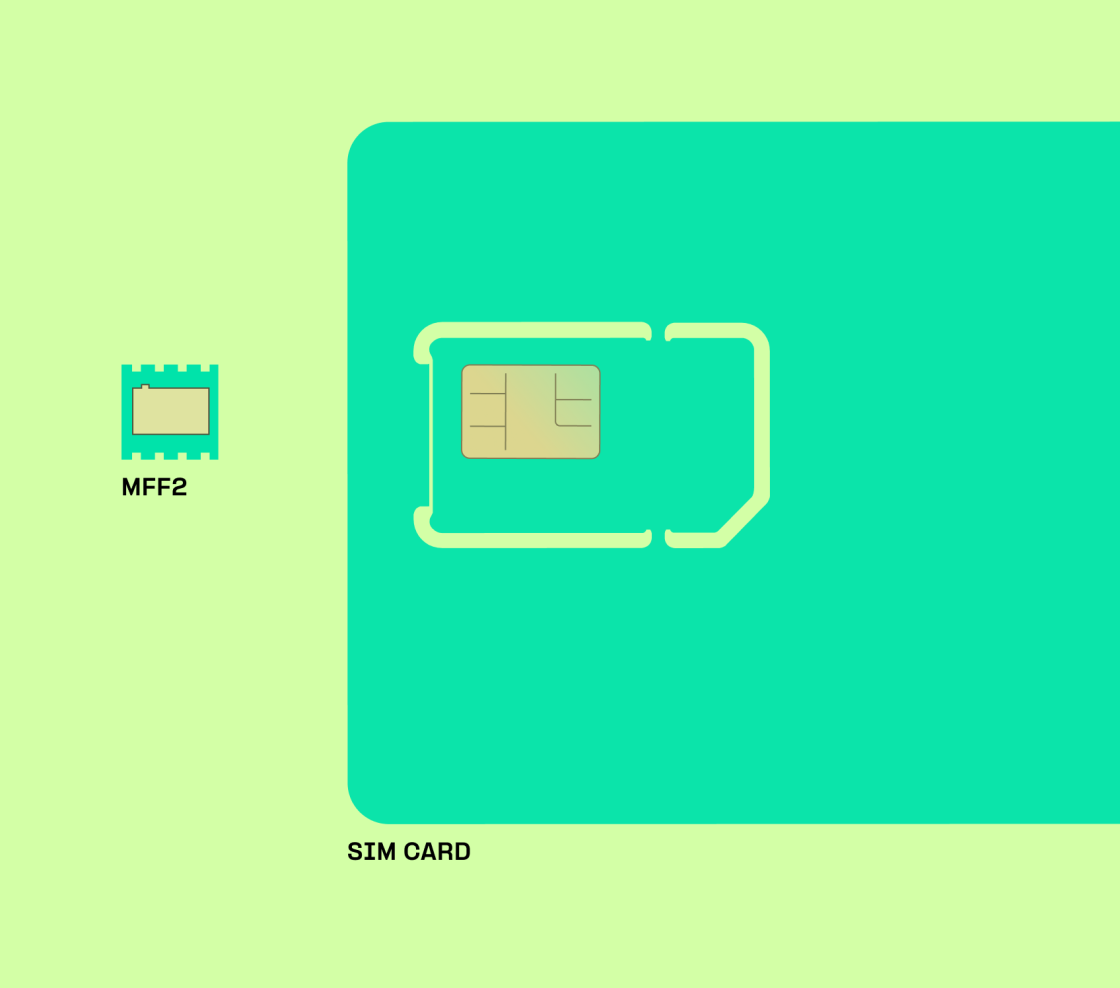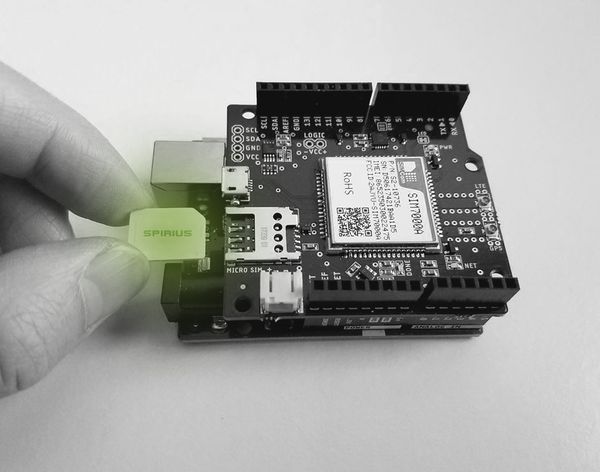Best IoT SIM Card The best IoT SIM card
Best IoT SIM Card The best IoT SIM card
Blog Article
2g Iot Sim Card IoT SIM network-independent IoT SIM
The panorama of producing is evolving rapidly, driven primarily by technological developments. Among these advancements, IoT connectivity options for manufacturing automation stand out as pivotal components reshaping how industries operate. The Internet of Things (IoT) integrates digital and bodily worlds, making a community of interconnected gadgets that talk seamlessly. This interconnectedness allows manufacturers to optimize their processes and enhance productiveness.
Real-time data is a cornerstone of recent manufacturing. Through IoT connectivity solutions, machines and sensors generate knowledge that provide insights into production processes. This quick access to data empowers manufacturers to make informed decisions shortly. For instance, if a machine is underperforming, operators can determine the difficulty and implement corrective actions directly, ultimately minimizing downtime and enhancing throughput.
Predictive maintenance is another significant advantage of IoT connectivity options. By repeatedly monitoring tools performance via quite a few sensors, producers can anticipate failures earlier than they happen. This proactive approach drastically reduces maintenance costs and improves the lifecycle of machinery. Instead of adhering to a reactive maintenance strategy, organizations can optimize their maintenance schedules primarily based on actual machine circumstances.
Iot Sim Card Australia IoT SIMs Embedded Connectivity
IoT technology also facilitates higher supply chain management. With the combination of sensors all through the provision chain, producers acquire enhanced visibility into stock levels and material flows. This improved visibility allows businesses to optimize stock administration, ensuring that they have the required supplies available with out overstocking. Such efficiency interprets to reduced costs and improved service levels, which are crucial for maintaining a competitive edge.
Automation and robotics are increasingly reliant on IoT connectivity solutions. Smart factories integrate automated techniques powered by IoT to streamline manufacturing processes. Robotics outfitted with IoT capabilities can communicate with each other and adjust their actions based on real-time data from the environment. This level of synchronization permits the implementation of adaptive manufacturing techniques that respond to fluctuations in demand rapidly and effectively. Iot Machine To Machine Sim Card.
Hologram Global Iot Sim Card IoT SIM cards
Implementing IoT connectivity options requires a strong community infrastructure. Manufacturers should put cash into dependable and secure communication networks able to dealing with the immense data generated by interconnected units. 5G technology is rising as a vital enabler of IoT connectivity in manufacturing. Its speedy speed and low latency assist the real-time purposes which are important for data-driven decision-making.
Data analytics performs a vital role in harnessing the total potential of IoT connectivity solutions. With a wealth of data generated from related devices, producers should make use of superior analytics instruments to extract actionable insights. Machine learning algorithms can determine patterns and anomalies in knowledge that may not be apparent to human analysts. This data-driven method enhances operational efficiency by driving steady enchancment across manufacturing processes.
Cybersecurity is an important consideration as producers integrate IoT options into their operations. The connectivity that IoT brings increases the floor space for potential cyberattacks. Implementing strong safety measures to safeguard critical manufacturing techniques is paramount. This includes guaranteeing that each one gadgets are secure, information is encrypted, and steady monitoring for threats is in place.
Worker safety is considerably improved through IoT connectivity solutions. Wearable units equipped with sensors can monitor the health and safety of staff in real time. These smart wearables can alert personnel to hazardous circumstances, guaranteeing timely intervention. Such measures not only defend employees but in addition contribute to total productiveness by minimizing the danger of accidents.
Does Nb-Iot Need A Sim Card IoT SIM card Knowledge Base
The transition to smart manufacturing by way of IoT connectivity solutions also promotes sustainability. By optimizing processes, producers can considerably cut back waste and energy consumption. IoT units help track resource usage, enabling companies to establish areas the place efficiency could be enhanced. These environmentally friendly practices not only benefit the planet but can even lead to price savings over time.
The impression of IoT connectivity options on manufacturing extends past the operational realm. They allow enhanced buyer engagement by permitting producers to ship personalized services and products. Through IoT-enabled gadgets, manufacturers can gather data directory about customer preferences, resulting in the creation of tailor-made choices that better meet market demands. This level of engagement fosters buyer loyalty and strengthens model status.
In conclusion, IoT connectivity solutions for manufacturing automation symbolize a transformative force in the industry. By providing real-time insights, predicting gear failures, improving supply chain administration, and enhancing worker security, these solutions redefine operational efficiency. As manufacturers proceed to combine IoT technologies, the advantages prolong beyond conventional metrics of productivity and price. Embracing these innovations sets the groundwork for a extra sustainable and responsive manufacturing environment that's outfitted to fulfill the challenges of the lengthy run.
Iot Sim Card North America Reliable IoT SIM Cards Global Connectivity

- Enhanced real-time monitoring via IoT sensors permits manufacturers to track machinery performance and operational efficiency.
- Predictive maintenance is facilitated by IoT connectivity, lowering downtime and extending equipment lifespan by way of well timed interventions.
- Seamless integration of IoT units across production lines enhances data collection, resulting in improved decision-making processes.
- Wireless technologies corresponding to LPWAN allow cost-effective communication over huge manufacturing facilities, minimizing installation complexity.
- Cloud-based IoT platforms provide scalable options for information analytics and visualization, empowering manufacturers to determine trends and optimize workflows.
- Enhanced asset monitoring utilizing IoT gadgets ensures better inventory administration and lowered losses because of misplacement or theft.
- Industry-specific IoT protocols, like MQTT and CoAP, guarantee efficient and secure information transmission tailored to manufacturing wants.
- Advanced cybersecurity measures are essential in IoT ecosystems to protect sensitive operational information from potential threats and breaches.
- Integration of IoT with machine studying algorithms permits for autonomous adjustments and improvements in production processes primarily based on historical knowledge.
- Collaboration with IoT resolution suppliers allows manufacturers to customise connectivity strategies that handle their distinctive operational challenges.
What are IoT connectivity options for manufacturing automation?
IoT connectivity solutions enable seamless communication between machines, sensors, and gadgets within a manufacturing environment, facilitating knowledge exchange, monitoring, and control to enhance operational effectivity and decision-making.
How do IoT connectivity solutions enhance manufacturing processes?
These options streamline workflows, reduce downtime, and optimize asset utilization by offering real-time information insights, enabling predictive maintenance, and enhancing supply chain visibility.
Sim Card For Iot Devices IoT SIM card Knowledge Base
What types of IoT connectivity technologies are commonly used in manufacturing?

Common technologies embrace Wi-Fi, Zigbee, LoRaWAN, cellular (4G/5G), and Bluetooth. Each expertise provides distinctive benefits based mostly on vary, knowledge switch speed, and power consumption suited for completely different manufacturing wants.
How safe are IoT connectivity solutions for manufacturing?
Robust security measures, together with encryption, device authentication, and community segmentation, are important to guard production environments from cyber threats, ensuring information integrity and operational continuity.
Buy Iot Sim Card IoT Shattering Connectivity Expectations
Can IoT connectivity options be integrated with existing manufacturing systems?
Yes, many IoT options are designed for interoperability, permitting integration with legacy methods and gear. This enables producers to reinforce their capabilities with out replacing existing infrastructure.
Global Nb-Iot Sim Card IoT SIM Cards
What are the cost implications of implementing IoT connectivity solutions?
Initial setup prices might vary, however long-term financial savings are sometimes realized through elevated efficiency, decreased waste, and improved maintenance methods (Iot Gsm Sim Card). A detailed cost-benefit analysis can help decide the financial influence.
How can I select the right IoT connectivity answer for my manufacturing facility?

Evaluate components such as scalability, reliability, ease of integration, and specific use case necessities. Consulting with industry specialists and conducting pilot initiatives can help in identifying the most effective fit i loved this for your needs.
Best IoT SIM Card Simplify IoT SIM Card Management
What are the challenges in adopting IoT connectivity solutions for manufacturing?
Challenges might embody cybersecurity considerations, interoperability points, and the need for workers training. Addressing these obstacles by way of strategic planning and stakeholder involvement can facilitate profitable adoption.
How does information collected via IoT connectivity influence decision-making in manufacturing?
Real-time information analytics allows producers to make knowledgeable decisions shortly, optimizing operational processes, bettering quality management, and enabling proactive management of assets and potential points - Telkomsel Iot Sim Card.
Report this page